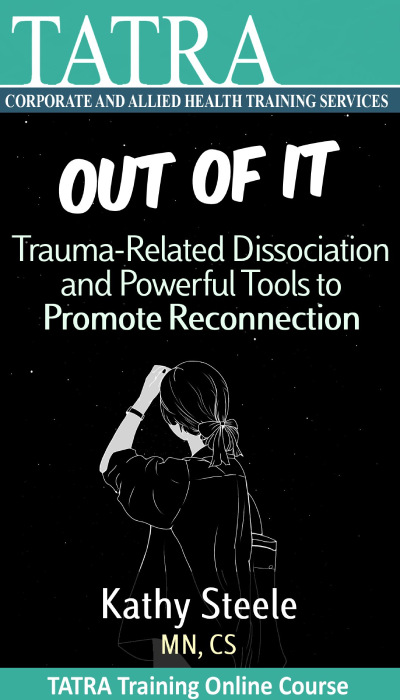21 Apr Out of It: Trauma-Related Dissociation and Powerful Tools to Promote Reconnection

Date course created: May 2024
Duration: 6 Hours
Dissociation is often mentioned in trauma trainings, but rarely explored in depth. This practical, evidence-informed workshop dives into dissociation as a complex and often misunderstood phenomenon, unpacking its diverse presentations, underlying drivers, and targeted treatment approaches.
Therapists can often feel overwhelmed or unsure when working with trauma-related dissociation—whether as a symptom or a full disorder. This training offers a clear, structured approach to understanding and working with dissociation, including four distinct types and how they show up in clinical practice.
Special focus is given to “structural dissociation”—the splitting of the sense of self into parts that remain overly separate and outside of voluntary control. This is a core feature in a range of trauma-related conditions, including complex PTSD and Dissociative Identity Disorder.
You’ll gain tools to assess dissociation (including how to ask about it directly), work with dissociative parts, and understand their protective functions. You’ll also learn how to gently support integration using targeted techniques, a strong therapeutic alliance, and an understanding of trauma-related avoidance—particularly the fear of inner experience, such as emotions, sensations, memories, and needs.
Designed for real-world application, this workshop will leave you feeling more confident and equipped to support clients experiencing dissociation.


This training will provide participants clinical knowledge and tools to:
a). After completing this training, participants will be able to define four types of dissociation and describe treatment differences.
b). After completing this training, participants will be able to learn and practice to assess for dissociative symptoms.
c). After completing this training, participants will be able to describe at least two step-wise systemic methods of working with dissociation that emphasize the integrity of the whole person.
d). After completing this training, participants will be able to learn and understand at least five interventions to help clients overcome the phobia of inner experience (thoughts, emotions, sensations, memories, wishes, needs, etc.).
e). After completing this training, participants will be able to identify and help the client resolve specific conflicts that are common in developmental trauma.
f). After completing this training, participants will be able to identify and describe common avoidance defenses in clients who are dissociative and employ interventions to resolve them.
Target Audience:
The target audience for this event includes psychologists, social workers, counselors, MFT’s, psychiatrists and other clinical mental health professionals.

 Kathy Steele, MN, CS
Kathy Steele, MN, CS
Kathy is in private practice in Atlanta, Georgia (USA) and is an Adjunct Faculty at Emory University. She is a Fellow and a past President of the International Society for the Study of Trauma and Dissociation (ISSTD) and is the recipient of a number of awards for her clinical and published works, including the 2010 Lifetime Achievement Award from ISSTD. She has (co)authored numerous publications in the field of complex trauma and dissociation, including three books, and lectures internationally on topics related to trauma, dissociation, attachment, resistance, and impasses.

This online workshop will give you instant access to 4 sessions of video content, accessible via streaming on our website, as well as downloadable PowerPoint slides. You can view the course content in your own time, there is no time limit on access.
The duration of this workshop is 6 learning hours. Please consult your professional organisation/association to confirm whether you are able to claim any CPD points/hours for this online workshop.
Please click the green ‘Mark Complete’ button on each module as you progress. A certificate of completion will be generated upon finishing the course and completing a short assessment quiz. If the certificate is not showing, please confirm you have marked all sections as ‘Complete’.



